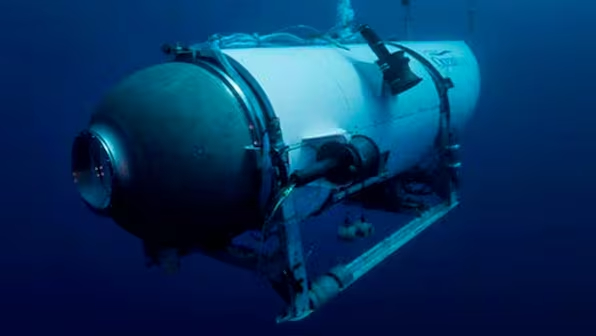In a shocking revelation during a recent Coast Guard hearing of Sinking of the Titan, David Lochridge, the former operations director of Oceangate, described the tragic sinking of the Titan submersible as “inevitable.” This incident, which occurred on June 18, 2023, claimed the lives of OceanGate co-founder Stockton Rush and four others, igniting a global discussion on the safety and future of private undersea exploration.
A Dire Warning
Lochridge, who joined Oceangate in 2015, expressed concerns about safety protocols within the company. He stated that his repeated clashes with CEO Stockton Rush stemmed from what he perceived as a “total disregard for safety.” This serious accusation raises critical questions about the management practices at Oceangate and whether safety was compromised in the pursuit of innovation and commercial expediency.
In his testimony, Lochridge suggested that the risks associated with the Titan were not adequately addressed. He claimed that the lack of stringent safety measures and the culture of prioritizing speed over safety created a perfect storm for disaster. His comments resonate with the views of many industry experts who stress that rigorous safety protocols are essential in high-risk operations like deep-sea exploration.
Pressure and Safety Concerns
Tony Nissen, another former employee of Oceangate, corroborated Lochridge’s concerns by sharing his experiences during his time with the company. Nissen revealed that he felt pressured to prepare the Titan for missions, even when he had reservations about its safety. He openly refused to undertake diving missions on the sub, highlighting the internal struggles faced by staff members who were concerned about the operational integrity of the vessel.
Nissen’s testimony underscores a troubling culture within the organization, where employees felt compelled to ignore their safety concerns. This environment of pressure and disregard for caution could have contributed significantly to the submersible’s tragic fate.
Implications for Private Undersea Exploration
The implosion of the Titan has raised alarming questions about the future of private undersea exploration. As more companies venture into the deep sea, the necessity for robust safety regulations becomes increasingly critical. The incident serves as a grim reminder of the potential dangers inherent in such endeavors, particularly when financial motivations overshadow safety considerations.
Regulatory bodies are now facing scrutiny regarding how they oversee private exploration companies. The tragic fate of the Titan has prompted calls for stricter regulations and guidelines that ensure safety is prioritized. Experts argue that a collaborative approach involving government agencies, private companies, and industry experts is essential to develop comprehensive safety protocols that can prevent future disasters.
A Call for Accountability
Lochridge’s revelations have sparked discussions about accountability within the organization. As a whistleblower, he has drawn attention to what he describes as systemic failures in Oceangate’s operations. The implications of his testimony could extend beyond individual accountability, prompting a broader examination of corporate governance practices in high-risk industries.
Stakeholders, including investors and customers, are now questioning how companies like Oceangate ensure the safety of their operations. The incident could potentially lead to a loss of public trust in private exploration efforts, as consumers become increasingly aware of the risks involved.
Conclusion
The tragedy of the Titan submersible serves as a stark reminder of the importance of safety in all aspects of exploration, particularly in environments as unforgiving as the deep sea. The testimonies of former Oceangate employees like David Lochridge and Tony Nissen expose critical flaws in the company’s safety culture and highlight the urgent need for reform.
As the debate surrounding the future of private undersea exploration continues, it is clear that the industry must prioritize safety and accountability. Without a commitment to rigorous safety standards, the potential for future tragedies looms large. The lessons learned from the Titan disaster must serve as a catalyst for change, ensuring that such an event never occurs again.
The ocean’s depths may hold tremendous potential for exploration and discovery, but that potential must not come at the cost of human life. It is essential for the industry to reflect on these revelations and make the necessary changes to safeguard the future of deep-sea exploration.


